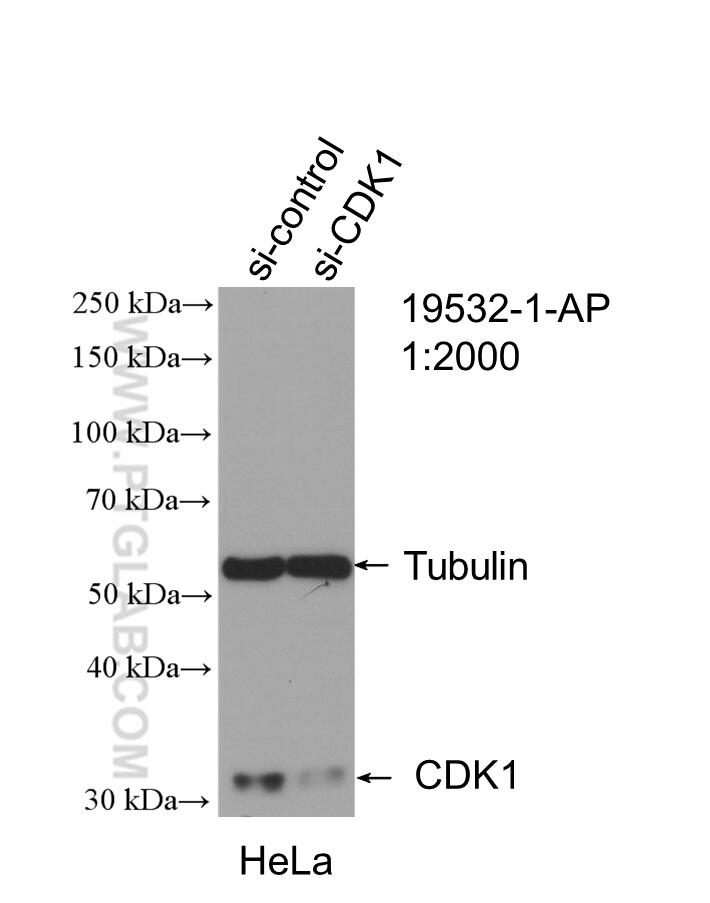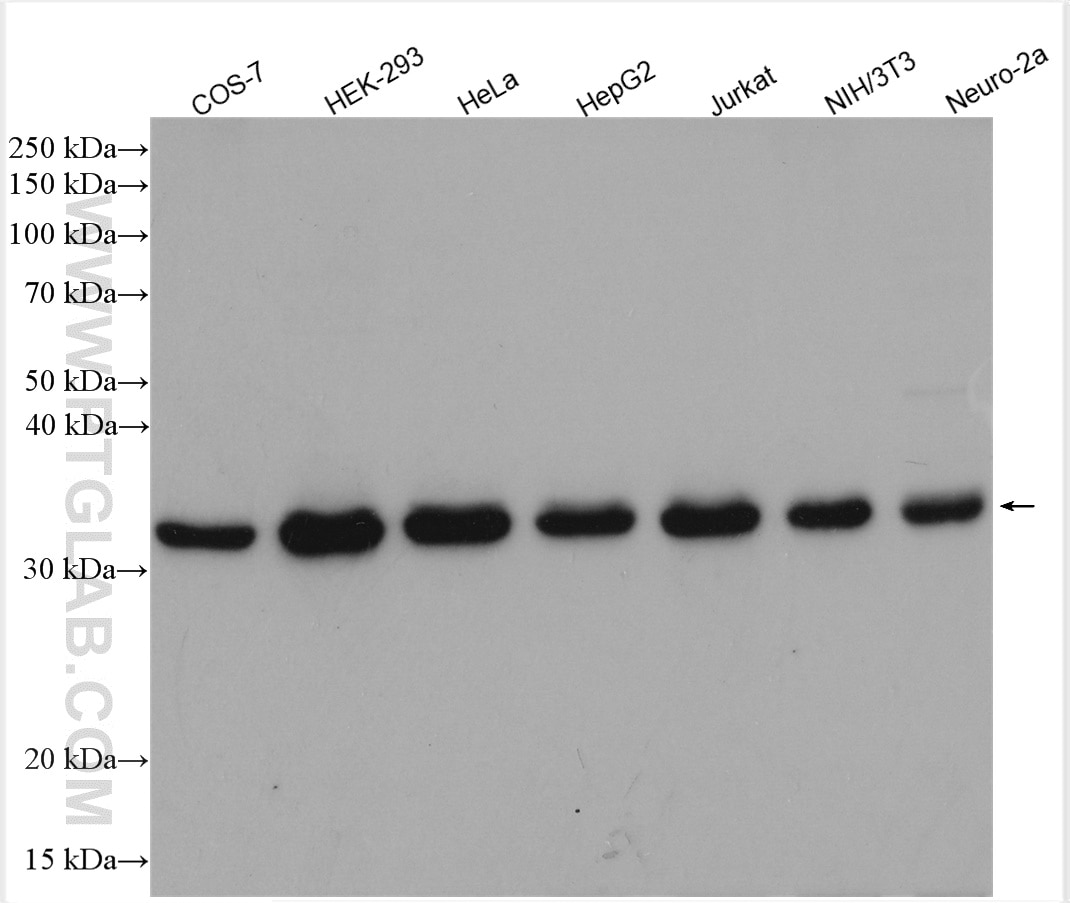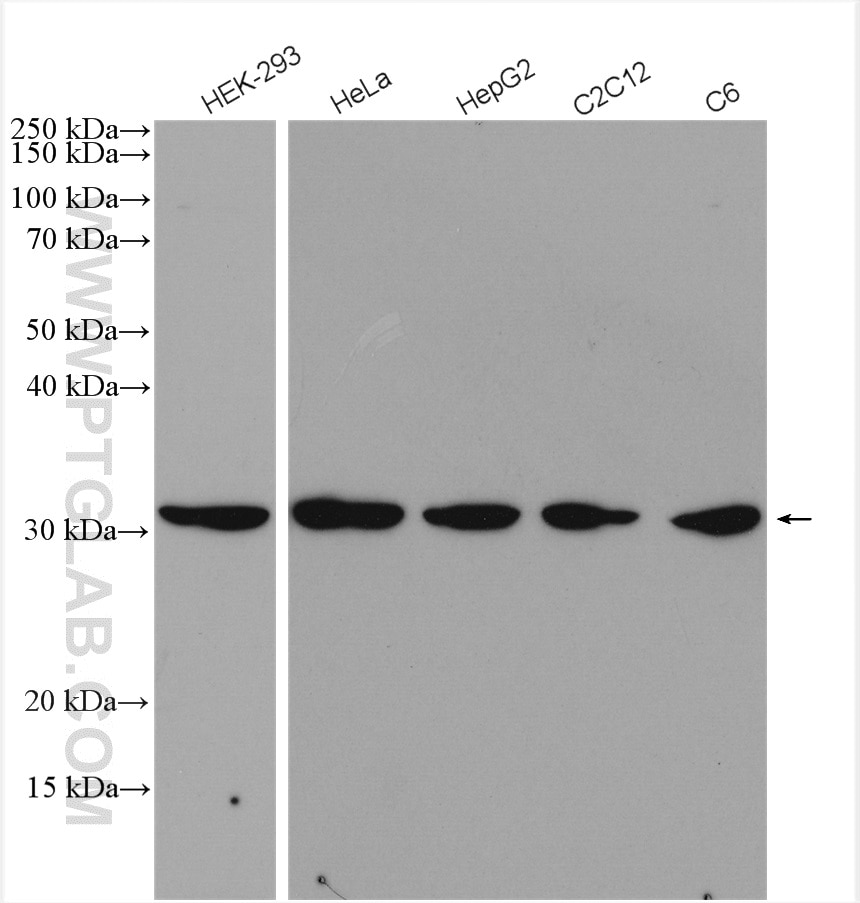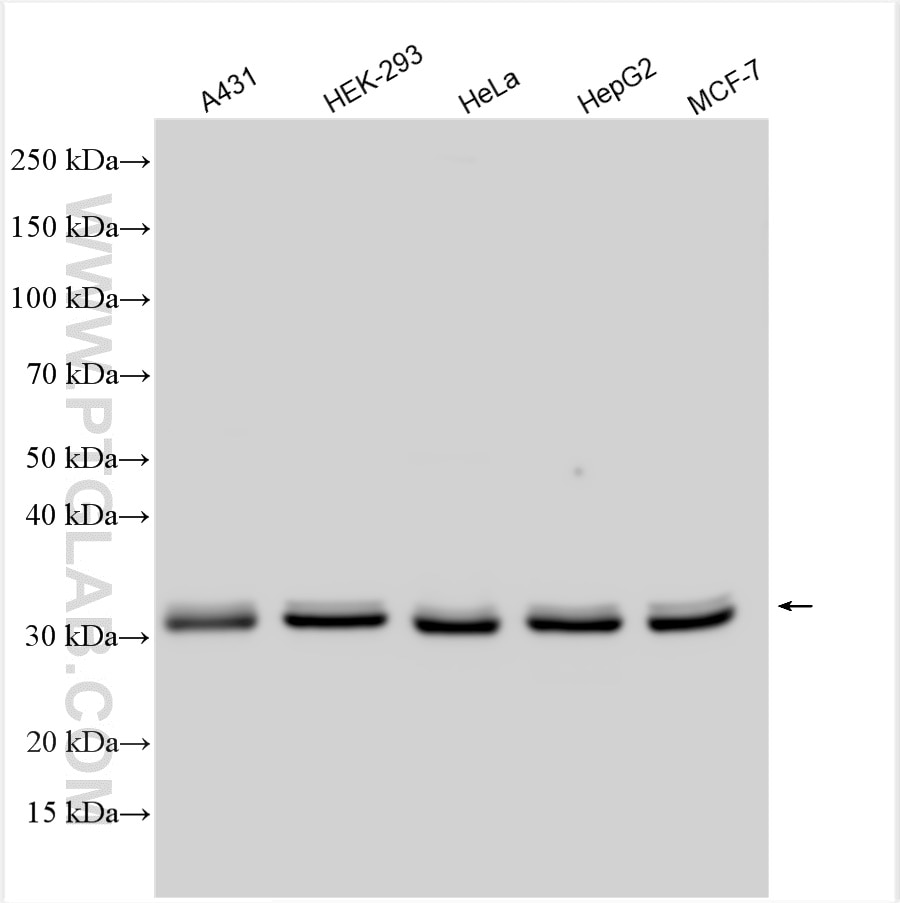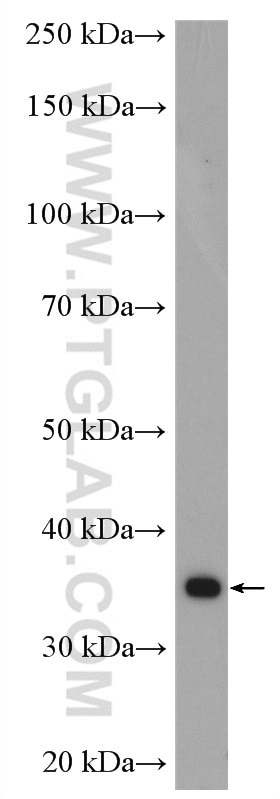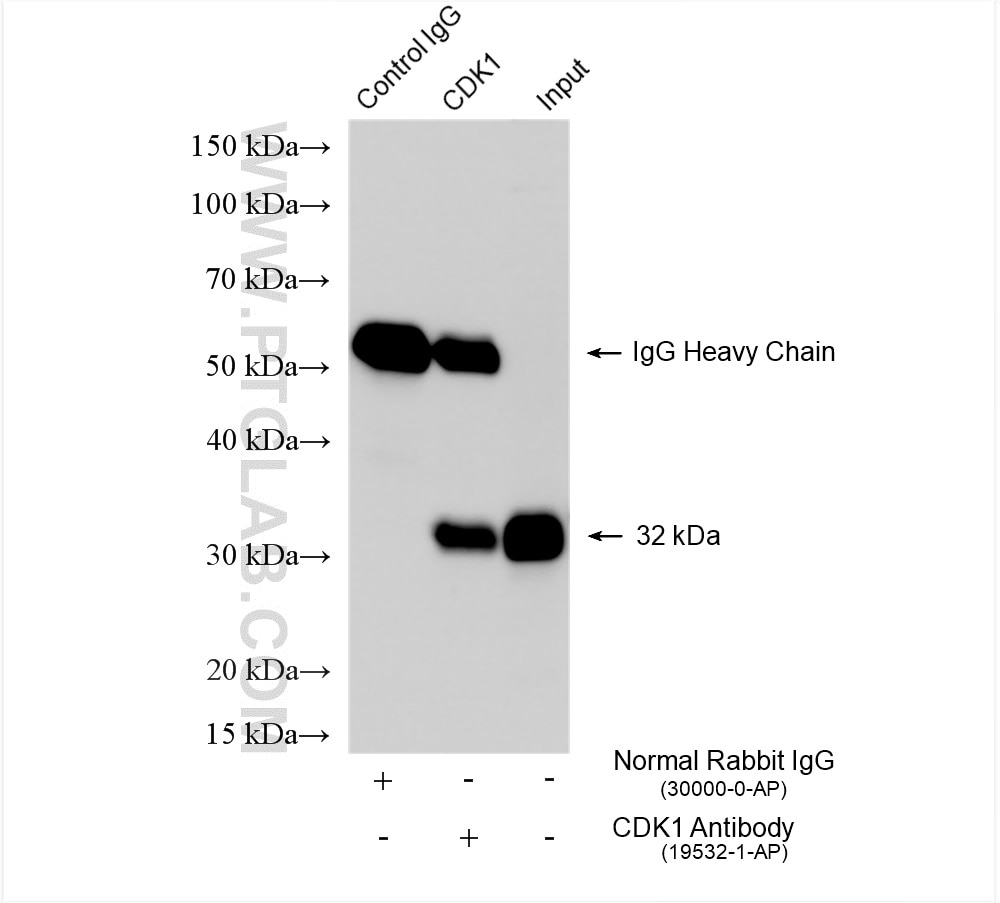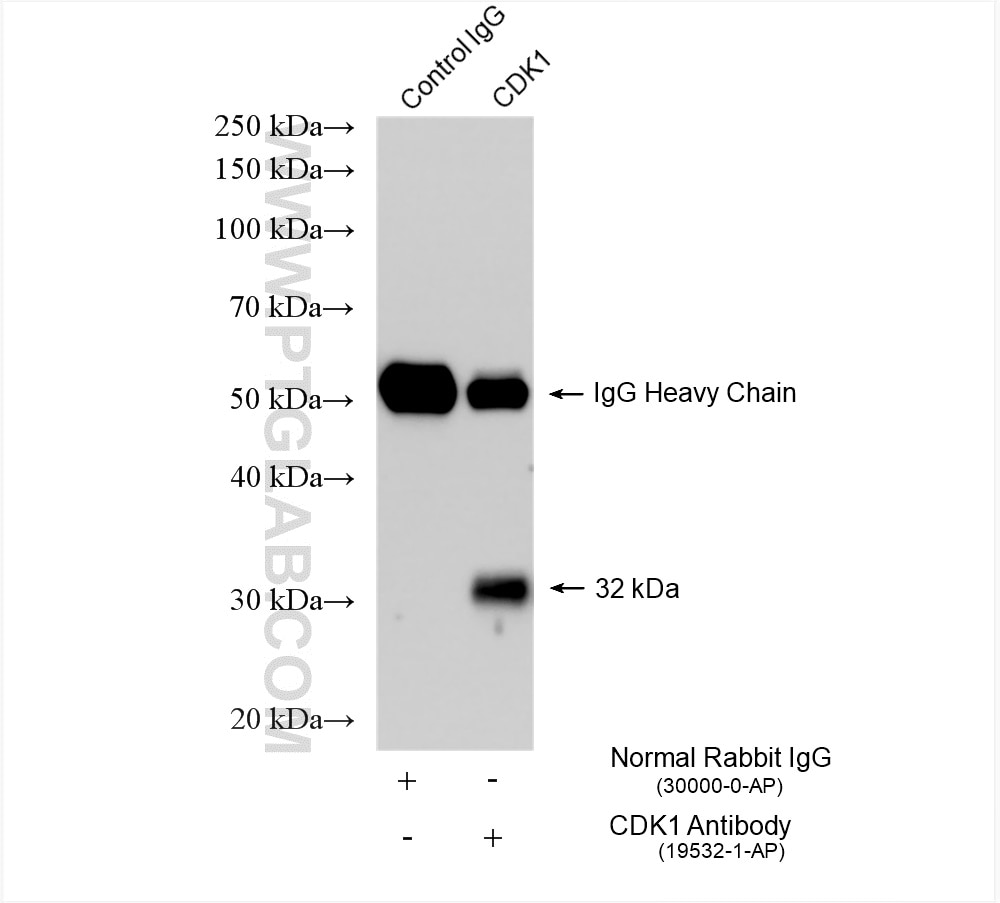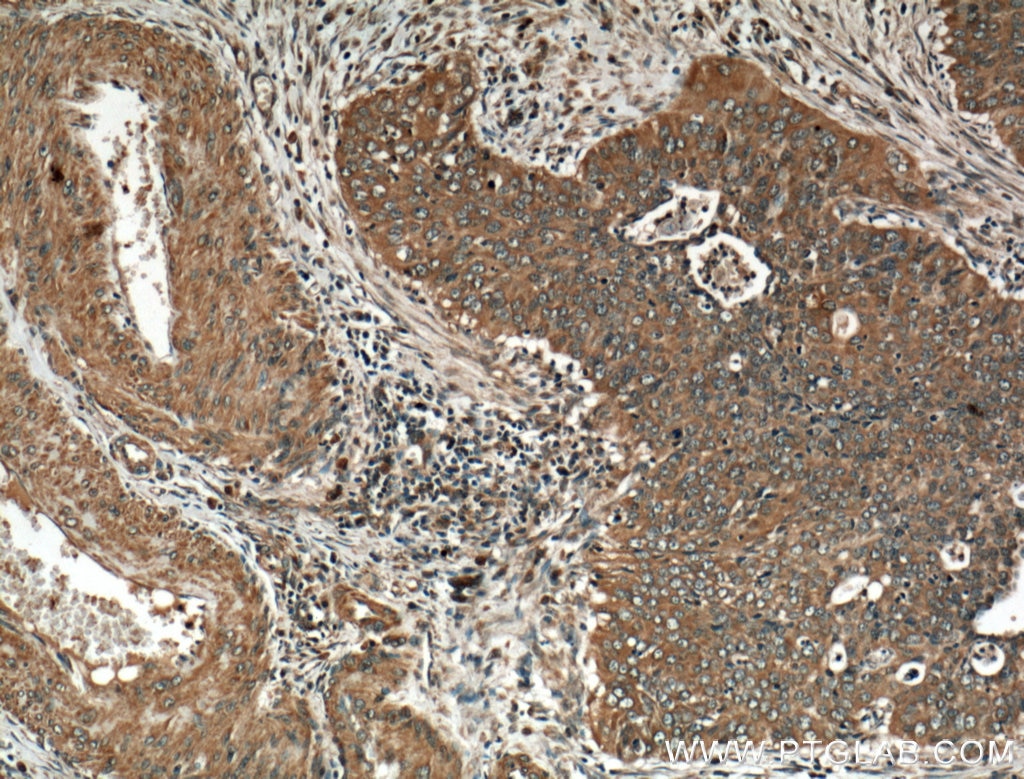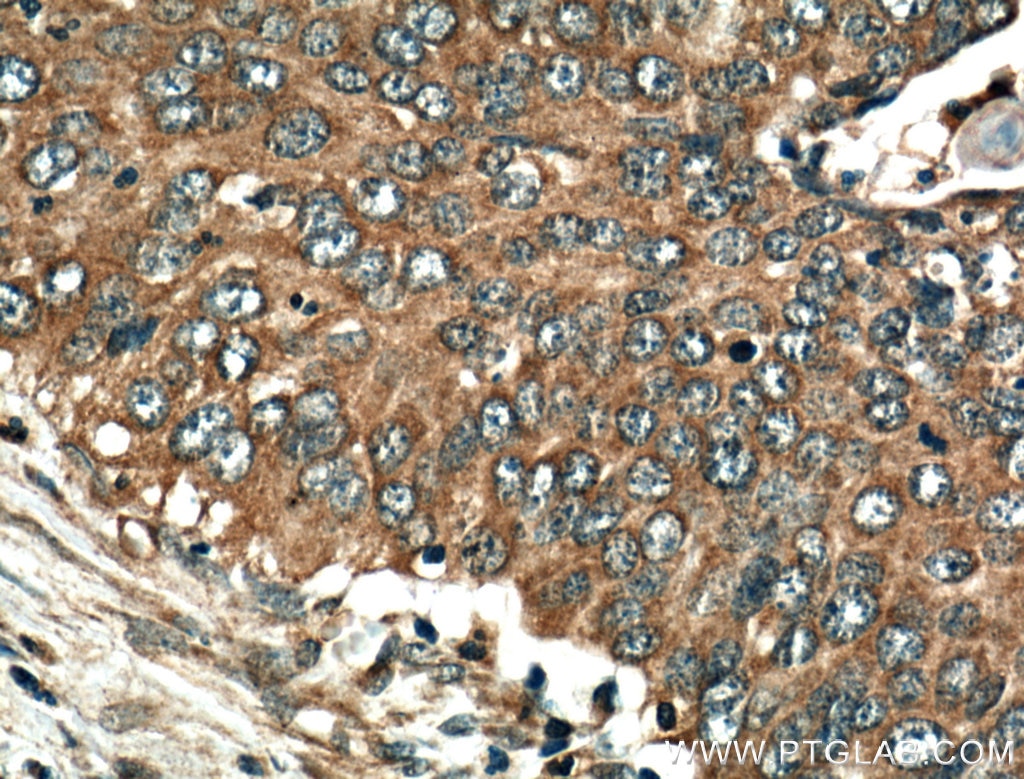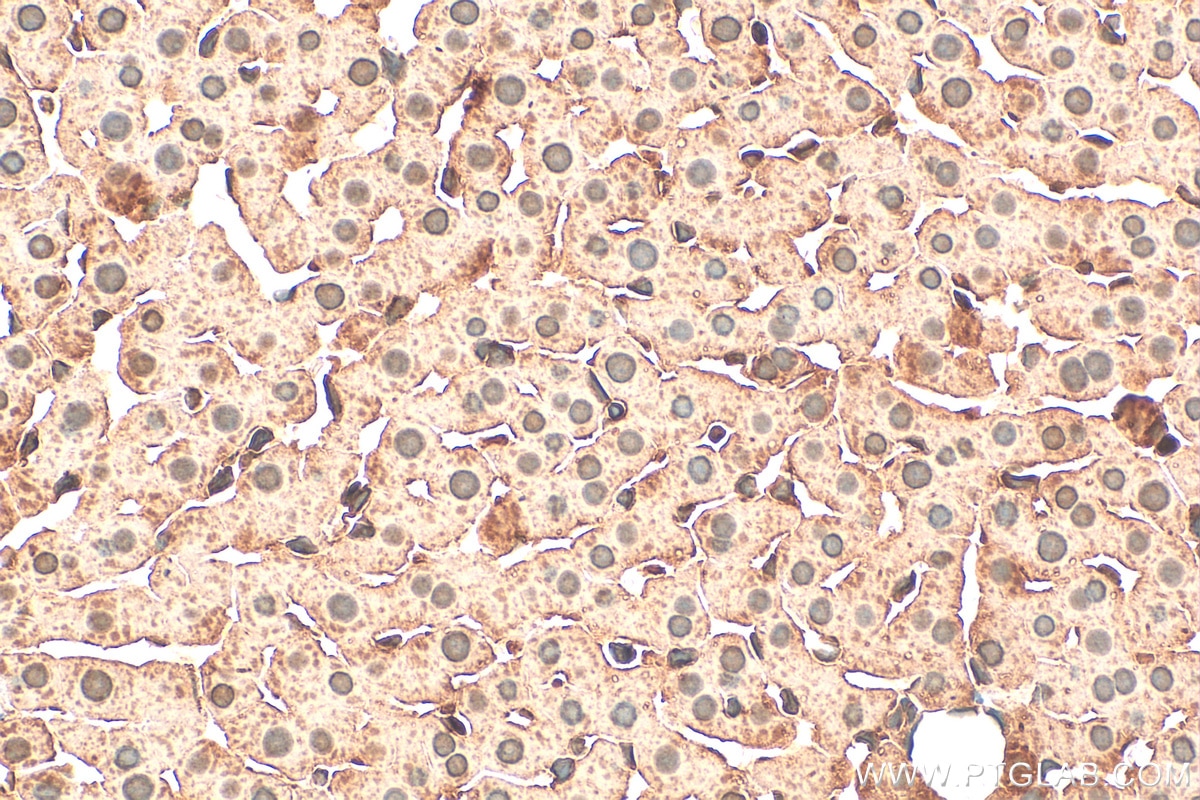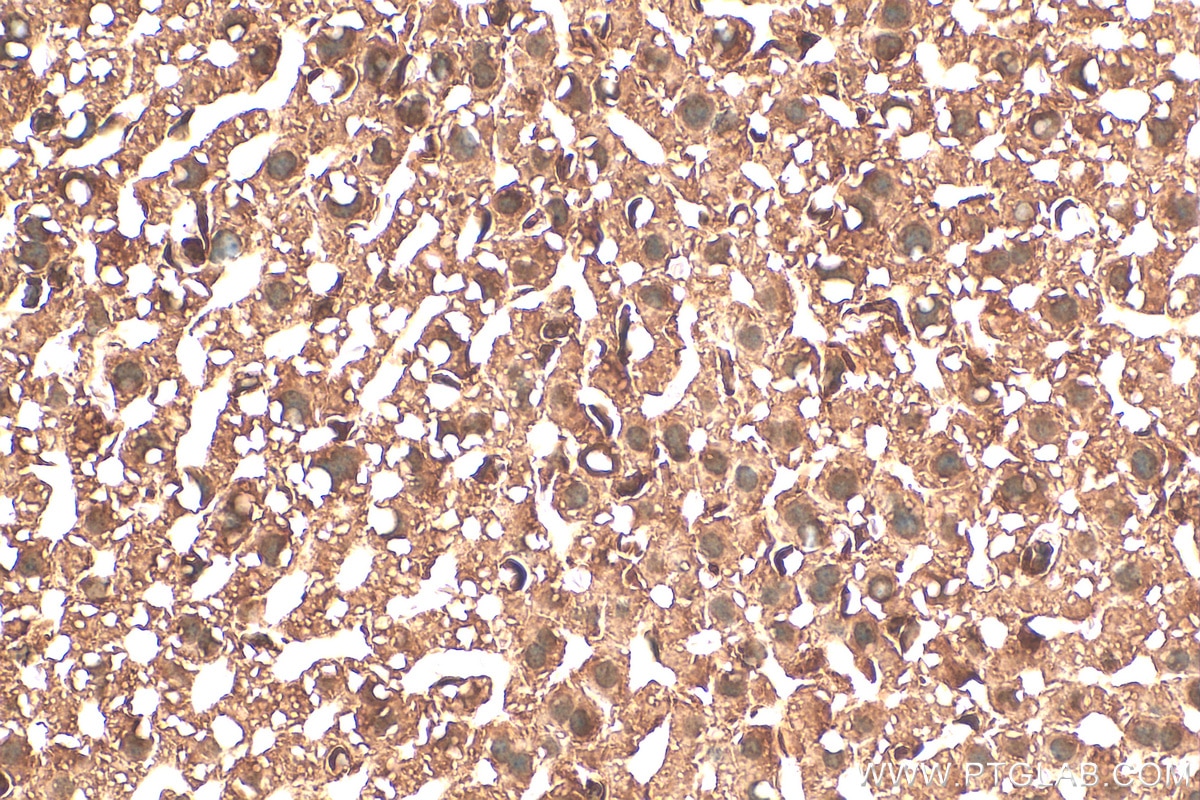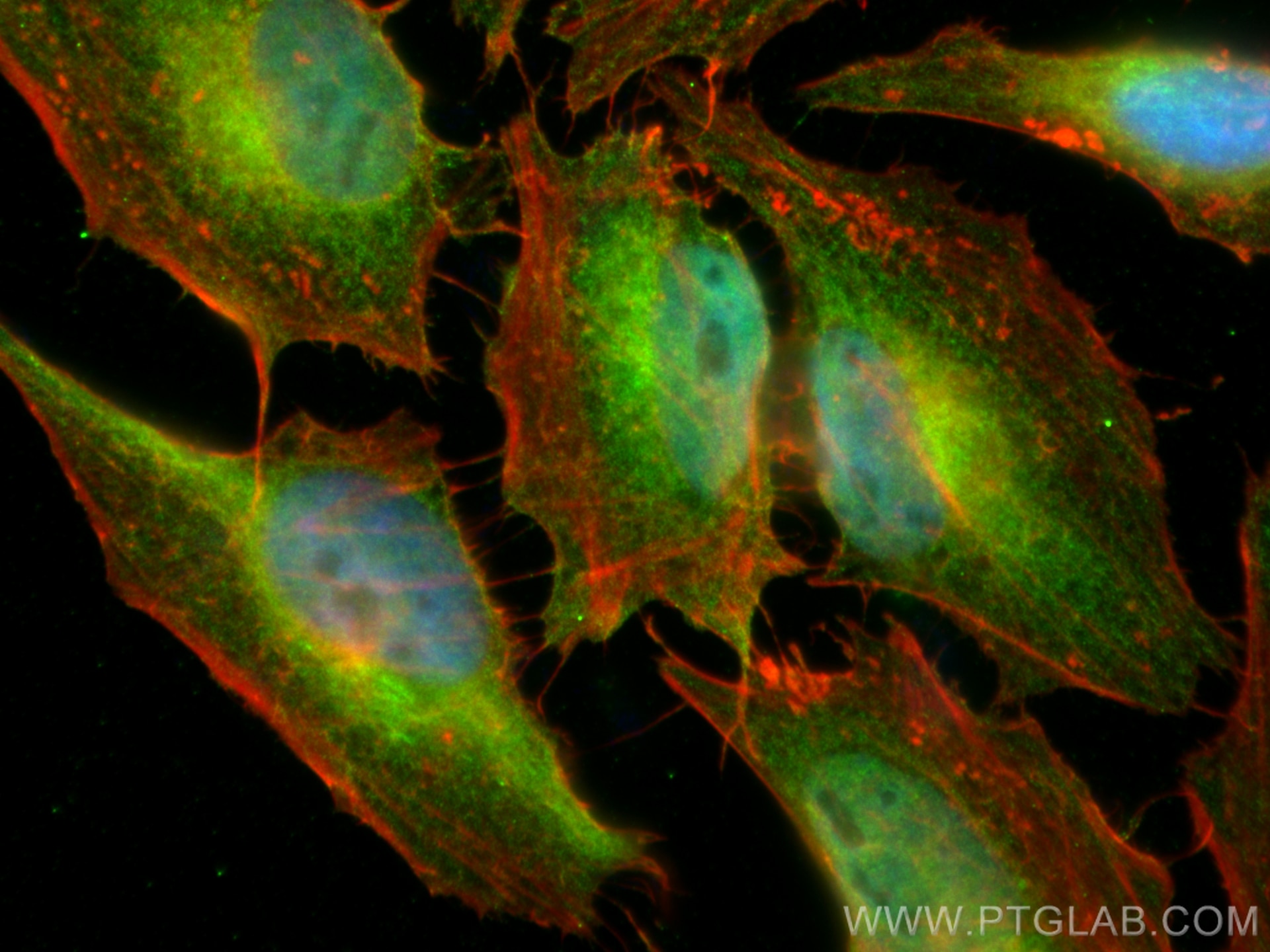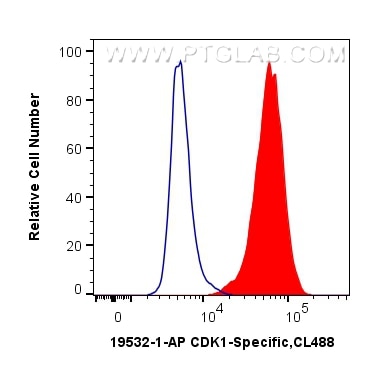- Featured Product
- KD/KO Validated
CDK1 Polyklonaler Antikörper
CDK1 Polyklonal Antikörper für WB, IHC, IF/ICC, FC (Intra), IP, ELISA
Wirt / Isotyp
Kaninchen / IgG
Getestete Reaktivität
Affe, human, Maus, Ratte und mehr (2)
Anwendung
WB, IHC, IF/ICC, FC (Intra), IP, ChIP, ELISA
Konjugation
Unkonjugiert
Kat-Nr. : 19532-1-AP
Synonyme
Geprüfte Anwendungen
| Erfolgreiche Detektion in WB | A431-Zellen, C2C12-Zellen, C6-Zellen, COS-7-Zellen, HEK-293-Zellen, HeLa-Zellen, HepG2-Zellen, Jurkat-Zellen, MCF-7-Zellen, Neuro-2a-Zellen, NIH/3T3-Zellen |
| Erfolgreiche IP | HeLa-Zellen, HEK-293-Zellen |
| Erfolgreiche Detektion in IHC | humanes Zervixkarzinomgewebe, Mauslebergewebe, Rattenlebergewebe Hinweis: Antigendemaskierung mit TE-Puffer pH 9,0 empfohlen. (*) Wahlweise kann die Antigendemaskierung auch mit Citratpuffer pH 6,0 erfolgen. |
| Erfolgreiche Detektion in IF/ICC | HeLa-Zellen |
| Erfolgreiche Detektion in FC (Intra) | HeLa-Zellen |
Empfohlene Verdünnung
| Anwendung | Verdünnung |
|---|---|
| Western Blot (WB) | WB : 1:2000-1:10000 |
| Immunpräzipitation (IP) | IP : 0.5-4.0 ug for 1.0-3.0 mg of total protein lysate |
| Immunhistochemie (IHC) | IHC : 1:100-1:400 |
| Immunfluoreszenz (IF)/ICC | IF/ICC : 1:200-1:800 |
| Durchflusszytometrie (FC) (INTRA) | FC (INTRA) : 0.40 ug per 10^6 cells in a 100 µl suspension |
| It is recommended that this reagent should be titrated in each testing system to obtain optimal results. | |
| Sample-dependent, check data in validation data gallery | |
Veröffentlichte Anwendungen
| KD/KO | See 7 publications below |
| WB | See 219 publications below |
| IHC | See 24 publications below |
| IF | See 10 publications below |
| IP | See 1 publications below |
| ChIP | See 1 publications below |
Produktinformation
19532-1-AP bindet in WB, IHC, IF/ICC, FC (Intra), IP, ChIP, ELISA CDK1 und zeigt Reaktivität mit Affe, human, Maus, Ratten
| Getestete Reaktivität | Affe, human, Maus, Ratte |
| In Publikationen genannte Reaktivität | human, Hausschwein, Huhn, Maus, Ratte |
| Wirt / Isotyp | Kaninchen / IgG |
| Klonalität | Polyklonal |
| Typ | Antikörper |
| Immunogen | Peptid |
| Vollständiger Name | cell division cycle 2, G1 to S and G2 to M |
| Berechnetes Molekulargewicht | 34 kDa |
| Beobachtetes Molekulargewicht | 30-34 kDa |
| GenBank-Zugangsnummer | NM_001786 |
| Gene symbol | CDK1 |
| Gene ID (NCBI) | 983 |
| Konjugation | Unkonjugiert |
| Form | Liquid |
| Reinigungsmethode | Antigen-Affinitätsreinigung |
| Lagerungspuffer | PBS with 0.02% sodium azide and 50% glycerol |
| Lagerungsbedingungen | Bei -20°C lagern. Nach dem Versand ein Jahr lang stabil Aliquotieren ist bei -20oC Lagerung nicht notwendig. 20ul Größen enthalten 0,1% BSA. |
Hintergrundinformationen
CDK1, also named as CDC2, belongs to the protein kinase superfamily, CMGC Ser/Thr protein kinase family and CDC2/CDKX subfamily. CDK1 plays a key role in the control of the eukaryotic cell cycle. It is required in higher cells for entry into S-phase and mitosis. CDK1 is a catalytic subunit of the highly conserved protein kinase complex known as M-phase promoting factor (MPF), which is essential for G1/S and G2/M phase transitions of eukaryotic cell cycle. It is a component of the kinase complex that phosphorylates the repetitive C-terminus of RNA polymerase II. Mitotic cyclins stably associate with CDK1 and function as regulatory subunits. CDK1 has 2 isoforms produced by alternative splicing with the molecular mass of 34 kDa and 27 kDa.
Protokolle
| PRODUKTSPEZIFISCHE PROTOKOLLE | |
|---|---|
| WB protocol for CDK1 antibody 19532-1-AP | Protokoll herunterladen |
| IHC protocol for CDK1 antibody 19532-1-AP | Protokoll herunterladenl |
| IF protocol for CDK1 antibody 19532-1-AP | Protokoll herunterladen |
| IP protocol for CDK1 antibody 19532-1-AP | Protokoll herunterladen |
| STANDARD-PROTOKOLLE | |
|---|---|
| Klicken Sie hier, um unsere Standardprotokolle anzuzeigen |
Publikationen
| Species | Application | Title |
|---|---|---|
Signal Transduct Target Ther SARS-CoV-2 hijacks cellular kinase CDK2 to promote viral RNA synthesis
| ||
Nat Cell Biol Caspase-2 is a condensate-mediated deubiquitinase in protein quality control | ||
Cell Res Single-cell RNA-seq highlights intra-tumoral heterogeneity and malignant progression in pancreatic ductal adenocarcinoma. | ||
Nat Struct Mol Biol Aurora kinase A-mediated phosphorylation triggers structural alteration of Rab1A to enhance ER complexity during mitosis | ||
Nat Commun Stabilization of Pin1 by USP34 promotes Ubc9 isomerization and protein sumoylation in glioma stem cells | ||
